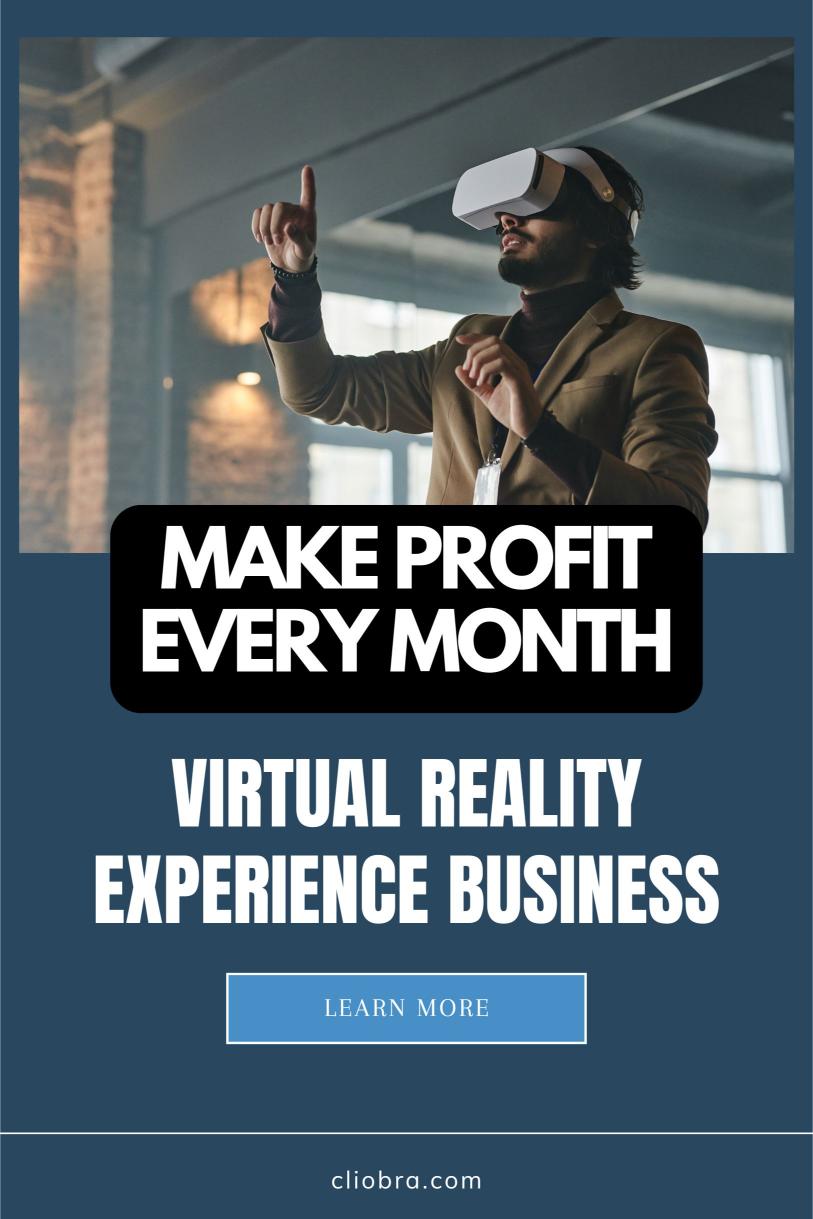Last Updated on October 15, 2024 by Arif Chowdhury
Have you ever fantasized about entering the virtual world and earning real money?
You’re not alone.
The VR market is exploding, set to hit $184.66 billion by 2026.
That’s a 48.7% growth rate from 2021 to 2026.
Crazy, right?
But here’s the kicker: you don’t need to be a tech wizard or have deep pockets to get in on this action.
Let’s break down how you can tap into this goldmine and potentially pocket $6,200 a month with your own home-based VR experience business.
Why VR? Why Now?
VR isn’t just for gamers anymore.
It’s revolutionizing everything from education to real estate.
People are hungry for immersive experiences.
And they’re willing to pay for them.
The average person spends 2.5 hours per week in VR.
That’s a lot of potential customers.
Getting Started: The Basics
First things first: equipment.
You’ll need:
- A high-quality VR headset (Oculus Quest 2 is a solid choice)
- A powerful computer
- Some space in your home (garage, spare room, basement)
Total startup cost?
About $2,000-$3,000.
Not bad for a business that could net you $74,400 a year.
Finding Your Niche
Generic VR experiences?
Boring.
You need to stand out.
Some ideas to get your creative juices flowing:
- Virtual travel experiences for seniors
- VR meditation and mindfulness sessions
- Virtual art galleries featuring local artists
- VR-based team building for remote workers
- Virtual house tours for real estate agents
Pick something you’re passionate about.
It’ll make the whole process more fun and authentic.
Pricing Your Services
This is where most people mess up.
They undervalue themselves.
Don’t fall into that trap.
Here’s a simple pricing structure:
- 30-minute experience: $30
- 1-hour experience: $50
- Group sessions (up to 4 people): $150/hour
Aim for 40 hours of bookings per month.
That’s your $6,200 right there.
Marketing Your VR Experience
Word of mouth is powerful.
But it’s not enough.
You need to get your name out there:
- Create a killer website showcasing your experiences
- Leverage social media (Facebook, Instagram, TikTok)
- Partner with local businesses for cross-promotion
- Offer free demos at community events
Pro tip: Use user-generated content.
Let your happy customers do the marketing for you.
The Money-Making Process
Here’s where the rubber meets the road.
- Book appointments through your website or phone
- Prep your space and equipment
- Guide clients through the VR experience
- Collect payment and ask for reviews
- Follow up for repeat bookings
Rinse and repeat.
Simple, right?
Scaling Up
Once you’ve got a steady flow of clients, it’s time to think bigger.
Some ideas:
- Hire part-time staff to handle more bookings
- Expand to multiple VR stations
- Create custom VR content for businesses
- Offer VR equipment rentals for events
The sky’s the limit.
Overcoming Common Challenges
Let’s be real.
It’s not all smooth sailing.
You’ll face some hurdles:
Challenge 1: Technical Issues
Solution: Always have backup equipment and a troubleshooting guide handy.
Challenge 2: Motion Sickness
Solution: Start with shorter sessions and have ginger candies on hand.
Challenge 3: Competition
Solution: Focus on your unique niche and provide exceptional customer service.
The Future of VR and Your Business
VR technology is evolving fast.
Stay ahead of the curve:
- Keep up with the latest VR news and trends
- Attend VR conferences and workshops
- Network with other VR entrepreneurs
- Continuously update your offerings
Remember, the goal is to provide value.
The money will follow.
Final Thoughts
Starting a home-based VR experience business isn’t just about making money.
It’s about creating unforgettable experiences.
It’s about pushing boundaries.
It’s about being part of the future.
So, are you ready to take the leap?
The virtual world is waiting.
And so is your $6,200 a month.
Let’s make it happen.
